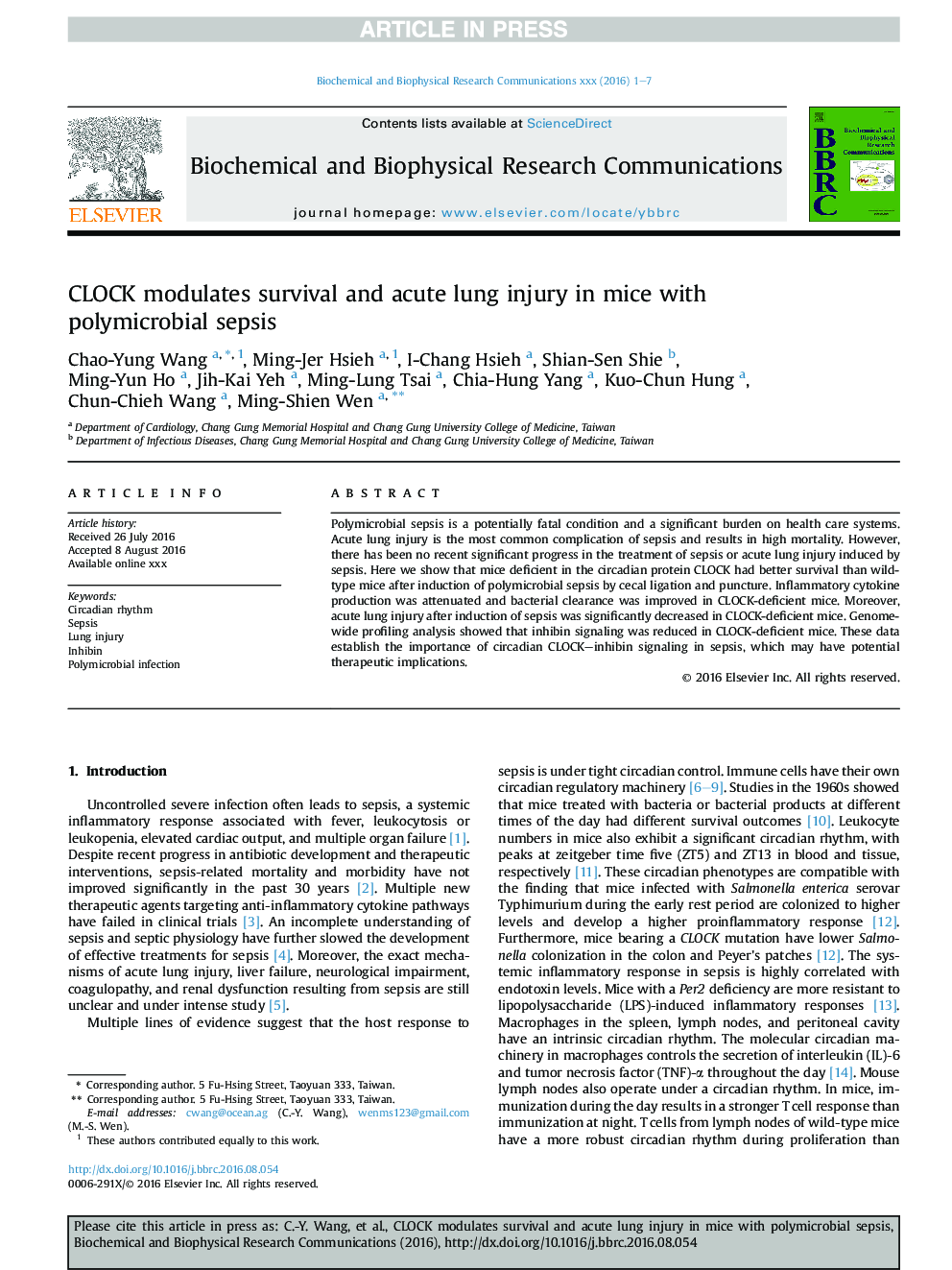| Article ID | Journal | Published Year | Pages | File Type |
|---|---|---|---|---|
| 5506836 | Biochemical and Biophysical Research Communications | 2016 | 7 Pages |
Abstract
Polymicrobial sepsis is a potentially fatal condition and a significant burden on health care systems. Acute lung injury is the most common complication of sepsis and results in high mortality. However, there has been no recent significant progress in the treatment of sepsis or acute lung injury induced by sepsis. Here we show that mice deficient in the circadian protein CLOCK had better survival than wild-type mice after induction of polymicrobial sepsis by cecal ligation and puncture. Inflammatory cytokine production was attenuated and bacterial clearance was improved in CLOCK-deficient mice. Moreover, acute lung injury after induction of sepsis was significantly decreased in CLOCK-deficient mice. Genome-wide profiling analysis showed that inhibin signaling was reduced in CLOCK-deficient mice. These data establish the importance of circadian CLOCK-inhibin signaling in sepsis, which may have potential therapeutic implications.
Related Topics
Life Sciences
Biochemistry, Genetics and Molecular Biology
Biochemistry
Authors
Chao-Yung Wang, Ming-Jer Hsieh, I-Chang Hsieh, Shian-Sen Shie, Ming-Yun Ho, Jih-Kai Yeh, Ming-Lung Tsai, Chia-Hung Yang, Kuo-Chun Hung, Chun-Chieh Wang, Ming-Shien Wen,
